Prøve GULL - Gratis
CAN HEARING LOSS BE REVERSED?
Reader's Digest US
|May 2023
The answer sounds like yes

"Hi, Vanessa! Nice to see you!" It feels good to hear those words when I see people I know. But I take it for granted that I have even heard that greeting-and, in fact, all other sounds. I never think about how I'm hearing things, how my brain is translating sounds into meaning.
Yet the process is fascinating. The journey of a sound from outside the ear and into the brain, which takes only milliseconds, is mind-bendingly elaborate. First, the sound waves enter each ear and vibrate the paper-thin eardrum. That vibration moves two small bones that sit behind it, which begin to dance in sync with the vibrations.
Then a third bone sitting against the cochlea starts to vibrate, and things get really interesting. The cochlea is a peasized bony structure shaped like a snail shell and filled with fluid. It's lined with tens of thousands of hair cells topped with bundles of miniature tubes called stereocilia. That vibrating third bone beats against the cochlea, like knocking on a door. The cochlea's fluid sways, and the hair cells wave like sea anemones. That movement causes the hair cells to release chemical neurotransmitters, triggering a series of electrical messages that are carried through the auditory nerves into the auditory cortex of the brain, which translates the electrical code into meaning.
The delicate stereocilia and hair cells have a limited lifespan. We start to lose our hearing because, as they're used again and again through a lifetime of exposure to sounds at regular volume or a shorter-term exposure to loud sounds-they can become damaged and stop doing their job. Called presbycusis, this age-related hearing loss is the most common type.
If I had mild to moderate presbycusis, certain consonants would be more difficult to discern, so "Hi, Vanessa. Nice to see you!" would sound like "...i Vane...a. Nice ...o ...ee you!"
A Growing Problem
Denne historien er fra May 2023-utgaven av Reader's Digest US.
Abonner på Magzter GOLD for å få tilgang til tusenvis av kuraterte premiumhistorier og over 9000 magasiner og aviser.
Allerede abonnent? Logg på
FLERE HISTORIER FRA Reader's Digest US
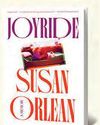
Reader's Digest US
Joyride
A poacher of rare orchid plants in Florida. An African king who drives a cab in New York City. How people spend a Saturday night in America.
1 min
December 2025 / January 2026
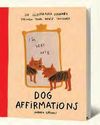
Reader's Digest US
Dog Affirmations
Illustrator Andrea Cáceres uplifts and delights with these picture-book insights into the deepest thoughts of man's best friend.
1 min
December 2025 / January 2026
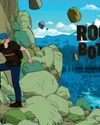
Reader's Digest US
ROCK BOTTOM
A HIKER SOMEHOW SURVIVED BEING PINNED IN A CREEK UNDER A 700-POUND BOULDER. THEN THE WATER STARTED TO RISE.
11 mins
December 2025 / January 2026
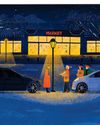
Reader's Digest US
Secret Santa Saves the Day
A stranger keeps the Christmas spirit alive for a little girl
4 mins
December 2025 / January 2026
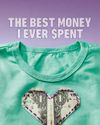
Reader's Digest US
THE BEST MONEY I EVER SPENT
Deep Pockets - One Christmas, my wife, who seldom wears jewelry, wanted diamond earrings as her gift. I obliged but figured the little box would ruin the surprise, so I bought an inexpensive fleece jacket at a farm supply store and put the earring box in the pocket.
5 mins
December 2025 / January 2026
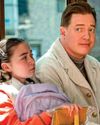
Reader's Digest US
Rental Family
Starring Brendan Fraser
1 min
December 2025 / January 2026
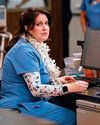
Reader's Digest US
St. Denis Medical
Starring Allison Tolman
1 min
December 2025 / January 2026
Reader's Digest US
No Drama Llamas
BEING WITH LOVED ones during the holidays is a delight. Getting there is not.
1 min
December 2025 / January 2026

Reader's Digest US
The Christmas Truce of 1914
As World War I raged around them, soldiers facing off along one stretch of the fighting decided to hit pause
6 mins
December 2025 / January 2026

Reader's Digest US
Our Hanukkah Miracle
Christmas takes on new meaning for a Jewish couple
3 mins
December 2025 / January 2026
Translate
Change font size
